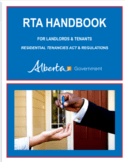Can landlord deduct from your security deposi? Can a landlord withhold a deposit? What is a security deposit deposit?
Security deposit laws allow a landlord to deduct from a security deposit for any damage. This is different from normal wear and tear, such as faded paint or worn carpet that is naturally occurring. Should the arrears owed be greater than the deposit the landlord may have to take court action to recover the balance. Damage and missing items Missing items speak for themselves.
Some landlords also automatically deduct carpet cleaning or other cleaning fees from your security deposit, which will be outlined in the lease. God I thought this sort of landlord was dying out. OK, if in the original agreement there is provision for a charge at check out, then he can. He can not take you check out fee from your mothers, a. But if there is no provision, he can not. Tony you have completely misunderstood the situation.
There is NO LANDLORD in the world who will let any tenants keep the deposit (especially not brothers). What has happened here is that the brothers have paid the deposit on the place. Usually, this is in order to cover any possible costs caused by the breach. A landlord or property manager can only withhold deposit monies for actual damages, whether material or financial. This means you can deduct money from a security deposit if a tenant owes you past-due rent and fees or has caused damages beyond normal wear and tear.
Paying rent on time is key to being a good tenant and maintaining a positive relationship with your landlord. If you have outstanding rent when your tenancy comes to an end , your landlord can deduct this from your security deposit. If this isn’t enough to cover it, they could take you to court to claim back the rest. Your landlord may deduct money from your deposit for several things.
What your deposit could be kept for. In most states and jurisdictions, security deposit laws allow a landlord to deduct from a security deposit for any damage or excessive dirtiness, but not for any expecte normal wear-and-tear. The deposit is your money. This means that you can deduct money if the tenant owes you past due rent or fees or if they caused damages beyond normal wear and tear. If you’ve fallen behind with your rental payments, your landlord may take this from your deposit.
In this short guide we detail what your landlord can and cannot deduct from your deposit. But the tenant has the right to dispute any deductions. However, the landlord can ask to withhold some or all of the deposit. If this happens an arbitrator will decide how the deposit money is distributed.
Deductions from the security deposit. There is some confusion about what landlords can deduct from a deposit. A landlord usually has to repaint their unit (s) every few years for basic upkeep, which is why they normally can’t deduct the cost of paint or hiring a painter from your deposit. However, if you’ve painted the walls an unusual shade, your landlord has the right to use your security deposit to cover the repainting costs.
Repairs for damage other than normal wear and tear. Landlords may not, however, use the deposit to cover the costs of ordinary wear and tear. Under some state laws, the security deposit may also be used for cleaning a rental unit after move-out, but only to make the unit as clean as it was when you first moved in. Landlords can deduct the cost of any repairs or cleaning fees that go above-and-beyond normal usage. In extreme cases, landlords could even sue a former tenant in court to cover additional fees if the property was left in extremely damaged condition.

Yes, a landlord can deduct painting from a security deposit if the tenant changed the wall color after moving in and did not restore the original color before moving out. Apart wear and tear, a tenant should turn over the rental property in the same condition that it was originally received.
No comments:
Post a Comment
Note: only a member of this blog may post a comment.